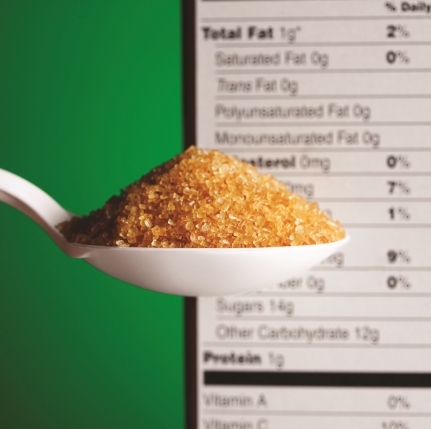Earlier this year the Center for Science and Democracy released two reports on added sugar in processed foods and beverages (not naturally occurring in the primary contents) and its impact on public health. In our first report, we showed how advertising practices, particularly to children, have manipulated the food “choices” people make and have contributed to an epidemic of obesity and diet related disease in the United States and around the world. In our second report, we documented the role the food industry has played in obscuring the facts about sugar in our diet by manipulating or hiding scientific evidence and information for public.
Now, scientists at the University of California, San Francisco (UCSF) have dug even more deeply into the scientific literature on the public health effects of sugar. Their new website sugarscience.org is a great resource for understanding the scientific evidence on health impacts of added sugar. In reviewing over 8,000 peer-reviewed scientific papers from the medical literature, the UCSF team of experts makes clear the connection between the consumption of sugar, particularly added sugar, and heart disease, liver disease, and diabetes.
Things go better with Coke… or not
Sugarscience.org highlights that sugary beverages are a prime culprit in not only increasing American sugar consumption but also disease risk. A single can of soda per day increases the risk of heart disease by one third. One can of soda exceeds the American Heart Association recommendation for daily sugar consumption for men and is nearly twice the allowance for women and children. And sugar consumption is not just linked to obesity but to non-alcoholic liver disease, affecting 31% of adults and 13% of children in this country. One in five Americans over the age of 20 have metabolic syndrome with higher risk of diabetes, heart and liver disease.

An added sugars declaration on the Nutrition Facts label would empower consumers with knowledge of how much sugar has been added to foods. Photo: iStock
But it isn’t just sugary beverages that are the problem. There is quite literally added sugar in almost all processed foods. The industry has argued that the body can’t distinguish added sugar from naturally occurring sugars in their products and that the impacts of the two sources of sugar can’t be distinguished. While it is true that the body breaks down all sugars into fructose and glucose, the impact of added sugar is clearly different from sugar naturally occurring in fruits and vegetables, according to the scientific literature.
You can do more …
Overconsumption of sugar in American diets is not a simple matter of personal choice. From aggressive marketing to children to the ubiquitous availability of foods high in sugar in virtually every store, vending machine, food outlet and public venue, our choices are shaped and manipulated. But we as citizens can start to take back control or our food system. We can raise awareness by sharing resources such as sugarscience.org. And our Food Policy Toolkit is a guide to opportunities for citizens and scientists to help change the policies that encourage the overconsumption of sugar as well as unhealthy diets more broadly. Nationally, now is the time to push for action to reform our food policy across the board as several food policy experts have highlighted recently. So when you are shopping for food for your family, remember: if someone offers you a sweet deal, read the fine print.
